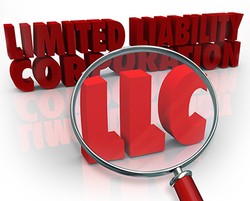If you're thinking about starting a business, or you're ready to incorporate, you may be wondering: which business type is best for me? Over the past few years, more options have opened up for business owners, including formation options like limited parterships and limited liability corporations, or LLCs. These are now two of the most popular entities because they come with many advantages. It's even possible to merge the two.
If you're trying to decide which of these two options is best for your business, let's review them together.
Image credit: PlanetofSuccess.com




 5 Steps to Starting Your Own Businesson 05/27/2016
5 Steps to Starting Your Own Businesson 05/27/2016
 Tips for Getting Certified as a Women Owned Businesson 05/06/2016
Tips for Getting Certified as a Women Owned Businesson 05/06/2016
 Tips for Writing Your LLC Articles of Organizationon 01/19/2016
Tips for Writing Your LLC Articles of Organizationon 01/19/2016
 Important Reasons to Incorporate Your Nonprofiton 09/14/2015
Important Reasons to Incorporate Your Nonprofiton 09/14/2015


Comments